U.S. Ski & Snowboard recently announced its U.S. Ski Team nominations for the 2022-23 season. Of the 22 athletes named to the team this season, six were not on the previous year’s roster, either newly named or renamed: Michael Earnhart, Walker Hall, Zak Ketterson, Will Koch, Finn O’Connell, and Sammy Smith.
To help fans get to know these new(er) faces, FasterSkier is doing a series of interviews, providing insights into the factors that have contributed to development, progress, and growth for these athletes last season. In this installment, we talk with Zak Ketterson about his renomination to the U.S. Ski Team on its B-Team, his World Cup breakthroughs this past season, and the growth of his club, Team Birkie.
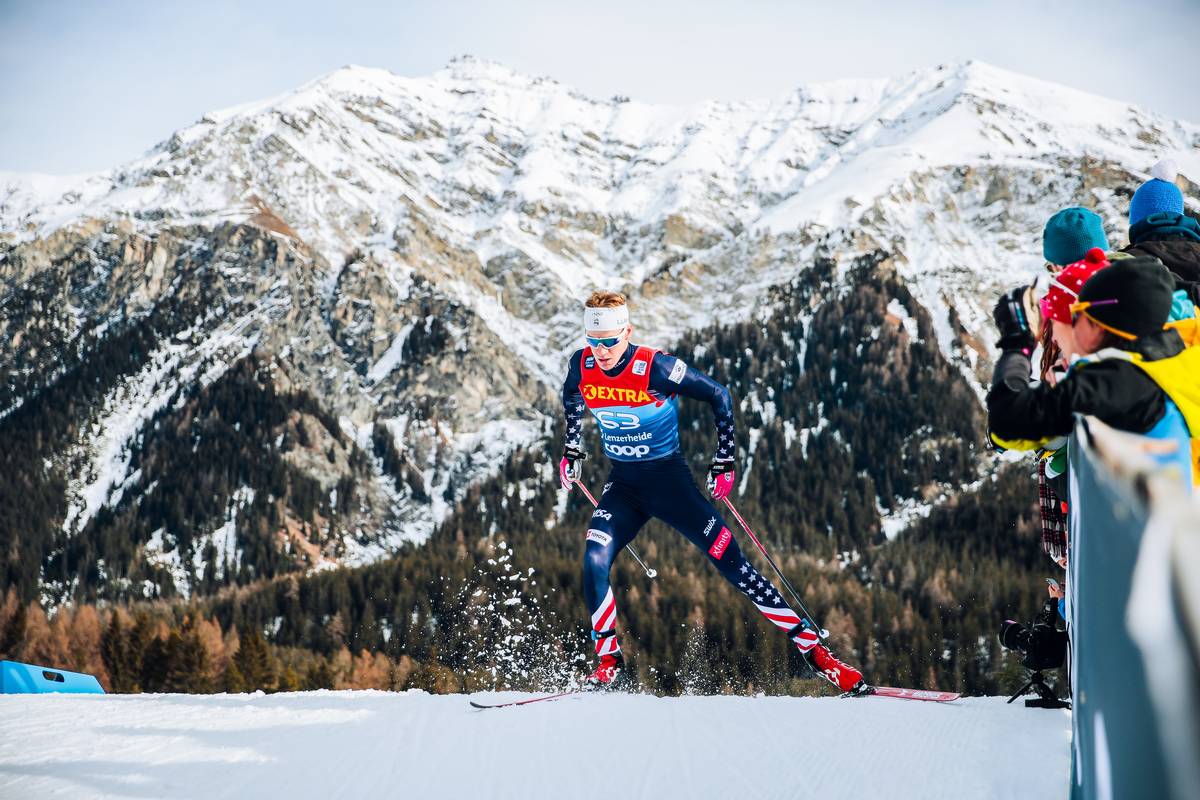
Ben Theyerl/FasterSkier (FS): Can you start off by telling us a little bit about yourself?
Zak Ketterson (ZK): I grew up in the Twin Cities area in Bloomington (MN). I didn’t really start skiing until 7th grade, when I got into it because my older brother (Jan) was on the high school team. Up until then, I had been into more of the traditional American sports – basketball, football, baseball – and even after my first few seasons of nordic skiing, I really didn’t like it that much better. I really wanted to play basketball, but I kept with skiing because I was having a lot of success in it, which is always fun, and like I said, I was getting to spend time with my brother and our teammates.
My first introduction to competitive skiing was the Minnesota high school league and trying to win the Minnesota state meet. That was the highest level of skiing in my head at the time, and in Minnesota, that’s the thing to win. Even as I progressed to being at Junior Nationals and started competing nationally, I wanted to win the State Meet.
When I got out to JNs, it was like, ‘oh, there’s a lot of good skiers from elsewhere,’ and that made me start thinking I wanted to continue with skiing – maybe do it in college. I went to Northern Michigan University (NMU), so stayed very local because being from the Midwest is pretty important to me. I just think it’s the coolest ski community, and always have, and going to NMU was cool because I got to follow the footsteps of Ian Torchia, Adam Martin, Kyle Bratrud, and go there with Leo Hipp and be teammates with them all – I didn’t have to leave.
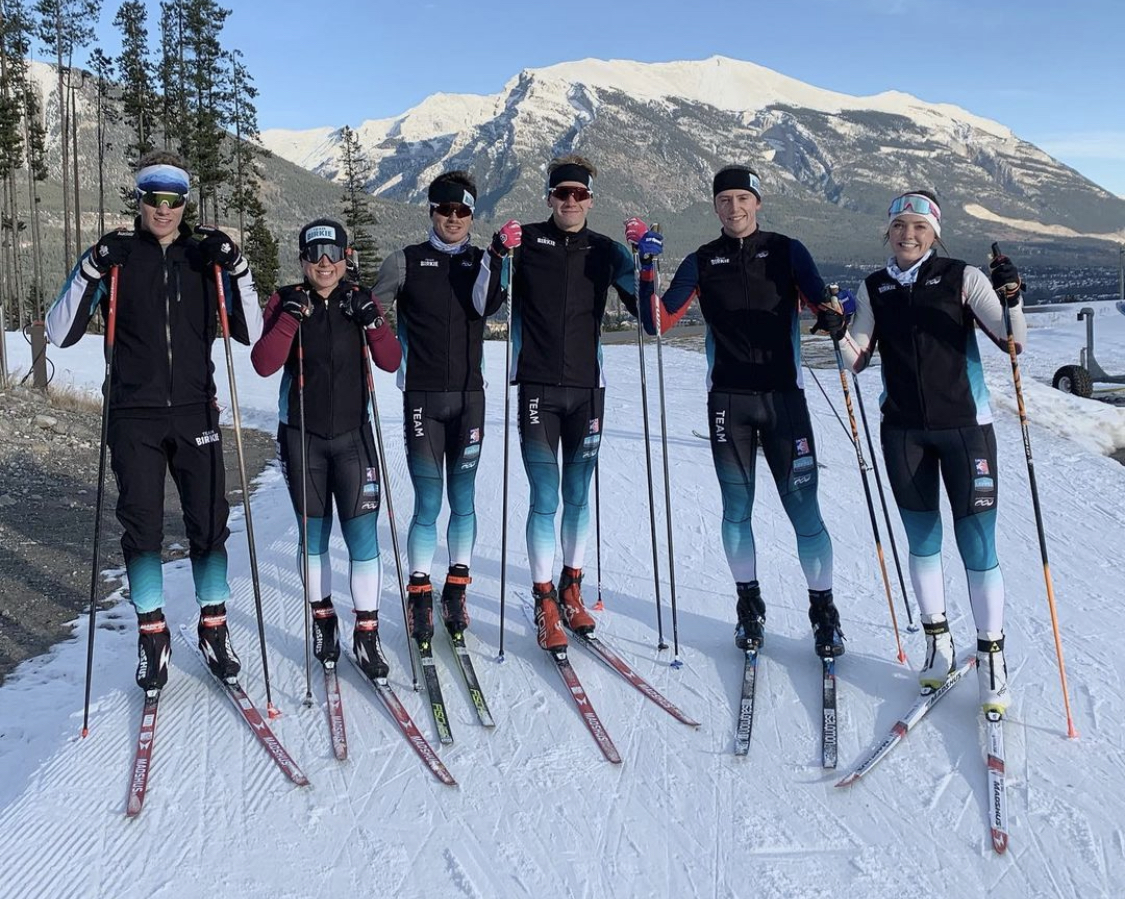
I worked with Sten (Fjeldheim) and NMU for five years and would say that was really where skiing turned into an actual passion for me. I fell in love with the process of improvement, training, and learning a lot more of the nitty-gritty stuff involved with this sport.
The Midwest thing really ended up influencing my decision to keep skiing afterwards as well. The [American Birkebeiner Ski Foundation] and the Loppet [Foundation] came to me with the idea of Team Birkie, which had been in the works ever since the CXC [Elite] team went away in the Midwest. And it worked out that it could finally come together last season. I was graduating, and it was already in the back of my mind that it would be really cool to be on a local team and building something new. When the Team Birkie opportunity came around, I was excited to say the least. It was a little scary to be part of something new, but I think we were pretty proud of what we were able to put together, and now, to see more people joining the team this year is even more exciting.
FS: Congratulations on the U.S. Ski Team nomination. If you take us back to last fall, what were your goals for the 2021-22 season?
ZK: There was a lot of big question marks – which is natural, I guess, when you’re going through a really big training environment switch. I was really comfortable at NMU for five years, and leaving that my mind was more towards how do I really take on the role of being a professional skier? Like, I moved back to Minneapolis, where I grew up, but I was renting an apartment and in the real world for the first time and starting with a new team where there were even more big question marks around what it would look like. So, I was nervous.
But the first week of practice here it just felt like coming home, and that the right pieces were falling into place. I had my old teammate Leo Hipp as my coach, and one of my old Loppet (Loppet Nordic Racing, or LNR) coaches Caitlin Gregg right there to work with me. It all sorted itself out very quickly, and I was just comfortable going into the racing season.
My goal then was to try and make some World Cups. I was hoping to have a successful first year doing pretty well on the SuperTour, which would lead to that main goal. When it kicked off in December, the races were was in Duluth and Cable, which again, just really made things feel comfortable. It felt like being on my home course. Even then, I was a little surprised with how well those went. I was ecstatic to come out of those weekends as SuperTour leader, to say the least, but I think myself and my coaches were a little surprised that it happened.
That had a real validating effect for the whole team that we were on the right track with how we were approaching the new training environment at Team Birkie.

FS: I was wondering about what happened right after that period. You earned a Tour de Ski start for leading the SuperTour, and so you went from racing the ultra-familiar on the Birkie trail to being on the start line of what is essentially the Grand Tour of skiing. How did you handle that stark transition?
ZK: I was very focused on just skiing the Tour de Ski (TDS), and not thinking about what it may lead to, or who I was going to be skiing against.
If you get an opportunity like that, you don’t turn it down. But flying over to Switzerland and seeing how big of a spectator event the TdS was and seeing these guys you’ve just seen racing on TV in the starting area with you, it’s a different world from Cable, for sure. I think it’s a sentiment most first time World Cup skiers would share – it’s overwhelming. Those first few races do feel different. It’s hard not to be super nervous and you’re not really skiing like yourself.
Doing the TdS as my first World Cup race was a whirlwind. There were some terrible races, some solid races, and some decent results. But I do think doing it as my introduction to the World Cup made the rest of the races seem very chill by comparison.
FS: One thing I noticed about your World Cup season is that you did well in some of the less ‘traditional’ formats, like the Alpe (Cermis) hill climb, or being on a mixed relay. Is there anything about your approach to racing that you think helps you adapt to those unique challenges?
ZK: I don’t know. I think sometimes if you expect to do super well in a race you put too much pressure on yourself – the Drammen sprint this year was a good example of that for myself. I know sprinting, and so I put too much pressure on myself to do well in the sprint, and it ended up being one of my worst races. Going into some races with no expectations this year really worked well to race relaxed.
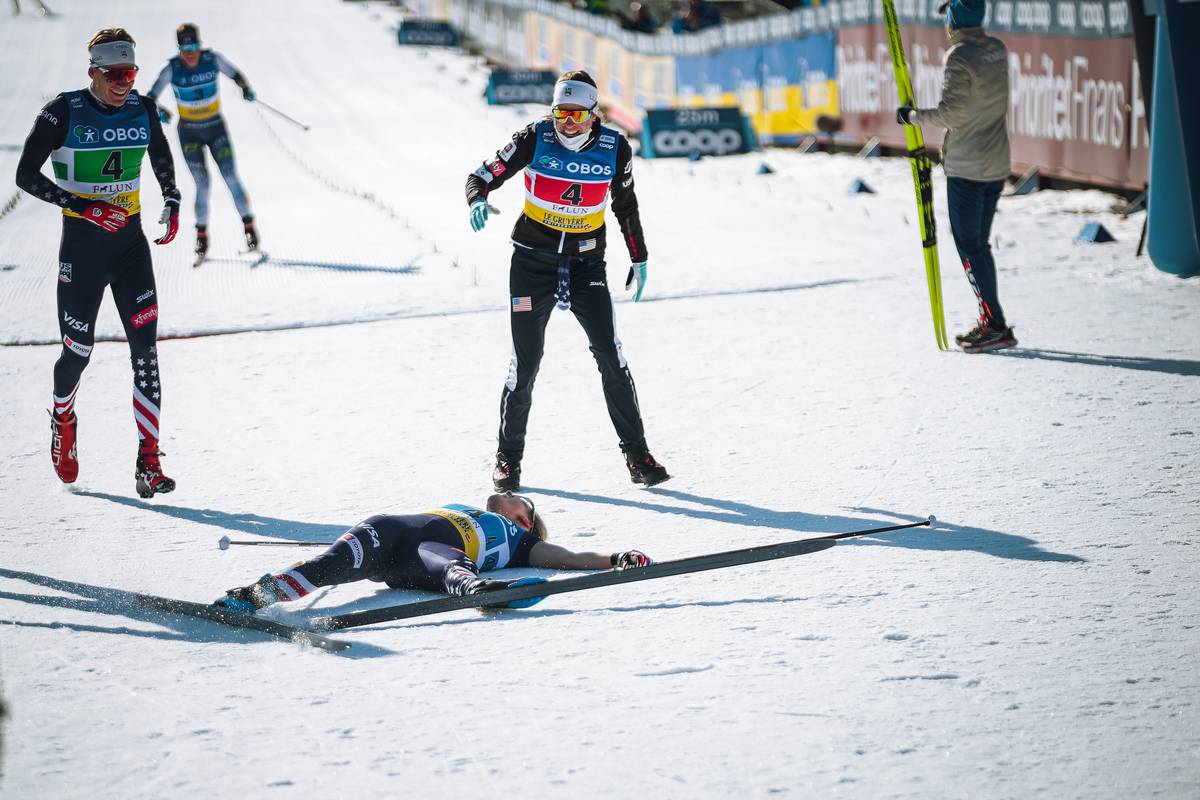
FS: Do you think you can pick one highlight of the season?
ZK: That’s a good question…I think it’s pretty easy to say the two Falun races (the 15 k Skate, and Mixed Team Relay), but I think more so than just the results that came there. I was coming off of some really tough races that were making me have those moments where you question whether you have to re-think your training and go back to the drawing board, and then I just tried to start from scratch when I got to Falun and came away with some great results (Ketterson finished 15th in the 15 k skate, and was part of the 1st place USA mixed relay team).
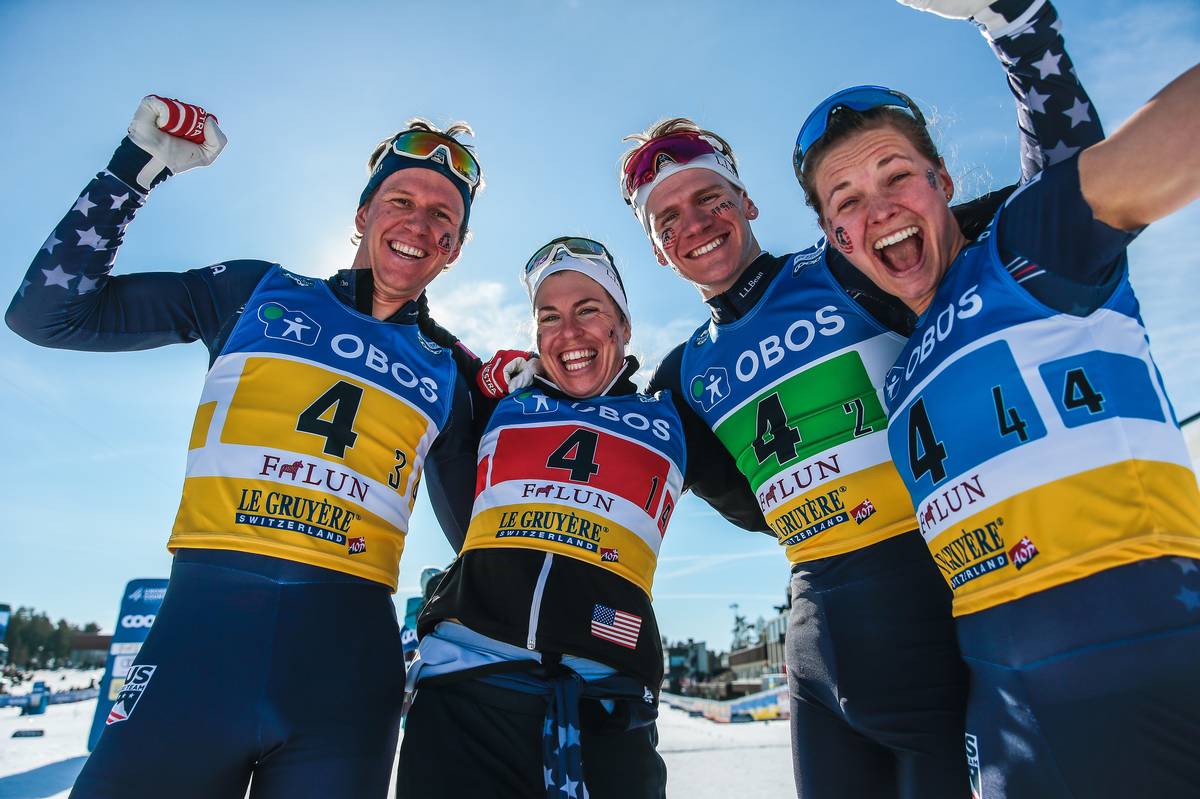
FS: Now turning to joining up again with the U.S. Ski Team. Did you make it out to Bend [for the USST spring training camp]?
ZK: I ended up staying in Europe after Falun actually, staying with an old NMU teammate in Norway to get some great spring skiing in. I wasn’t really expecting the call from Chris Grover (USSS Program Director) that I made the team, if I’m honest, and so when I did, I had just put in a big block of skiing in Norway, was half-way across the world, and decided that I probably couldn’t and shouldn’t hop into a huge training camp in Bend.
I’m really close with a lot of the guys and girls on the team so I’m not too worried about hopping in when I get to some of the other camps in summer. The big thing with the U.S. Team is the funding for the World Cup and the support; it will just take a lot of the complications to get to the racing out of it, so I can just focus on skiing well.
FS: What are your goals from here? Next season?
ZK: My goal in the sport is to become a really good World Cup skier, so anything that gets me there is going to be super important this next year. I think at the moment, the goals for next season are dependent on the if I get Period I starts, and from there, just trying to improve my placings on World Cup.
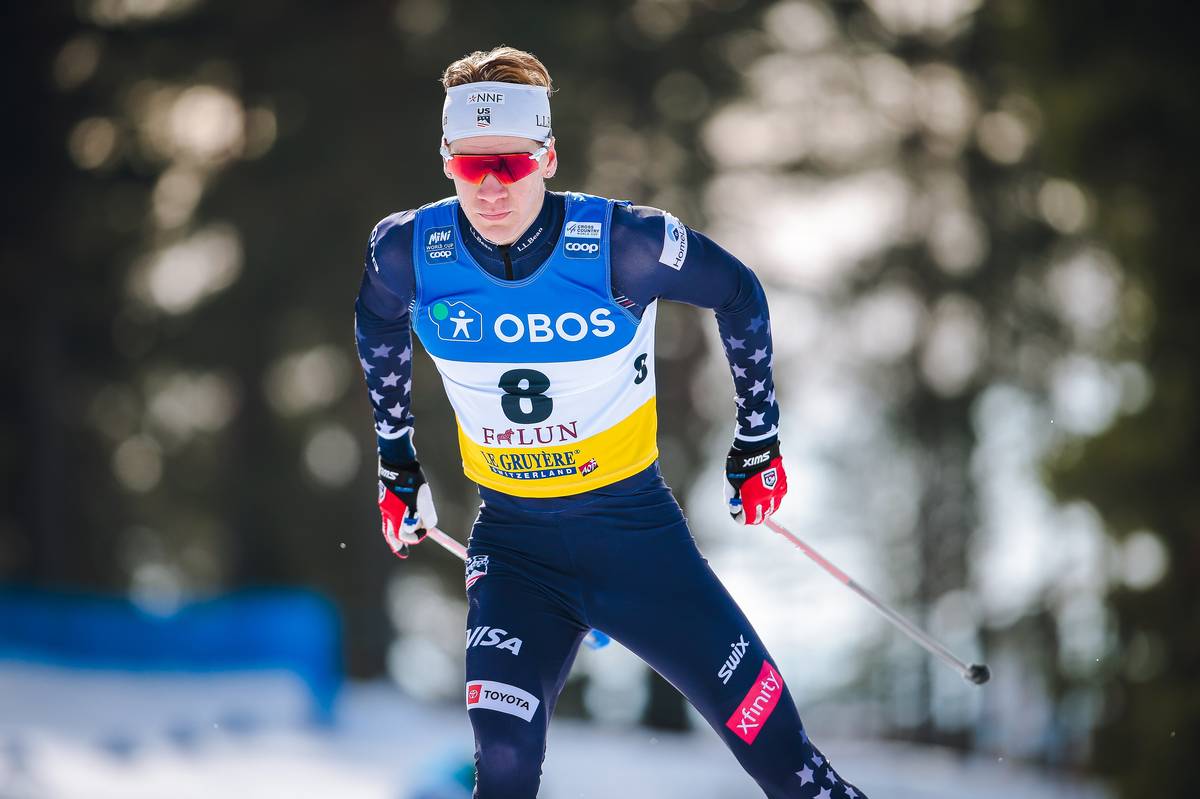
FS: I’ve both skied with, and now interviewed, a lot of your old LNR and NMU teammates, and one thing that sticks out to me is that you’ve contributed to, and been part of, some pretty great team environments in your ski career. What do you bring from those experiences to the US team now?
ZK: Well, like you said, I’ve been super fortunate with LNR and NMU to always have a really good training group where I feel like we’re there to make each other better in a really supportive way. I can recognize that it’s not us trying to out do each other everyday in training. That’s the attitude I hopefully can bring to the US Team. At the end of the day, if we’re doing better as individual skiers it helps make your teammates better. Keeping the ego out of it and really approaching it like a team environment is important to me.
FS: You’ve touched on Team Birkie a few times now. That strikes me as a pretty unique confluence of time and place for you graduating NMU and then joining up with a new team in the Midwest. Can you say a little bit about where that program is going? What is it like to be working with the Greggs – Caitlin and Brian – who both bring a lot of experience on the World Cup to preparing you to step onto that stage?
ZK: It’s so cool to have both of them at training pretty much every day. When I look at my goals, I have two people right there who’ve done it and know what it takes. To go to practice and have them hold me accountable, to literally have Brian right there doing intervals and holding me to what I need to be doing given what we’re finding in the training data is just a unique experience that I’m lucky to have. They’re also just really well prepared to offer training advice, life advice, and logistical advice for me – because with Team Gregg, it was them doing all of that stuff.
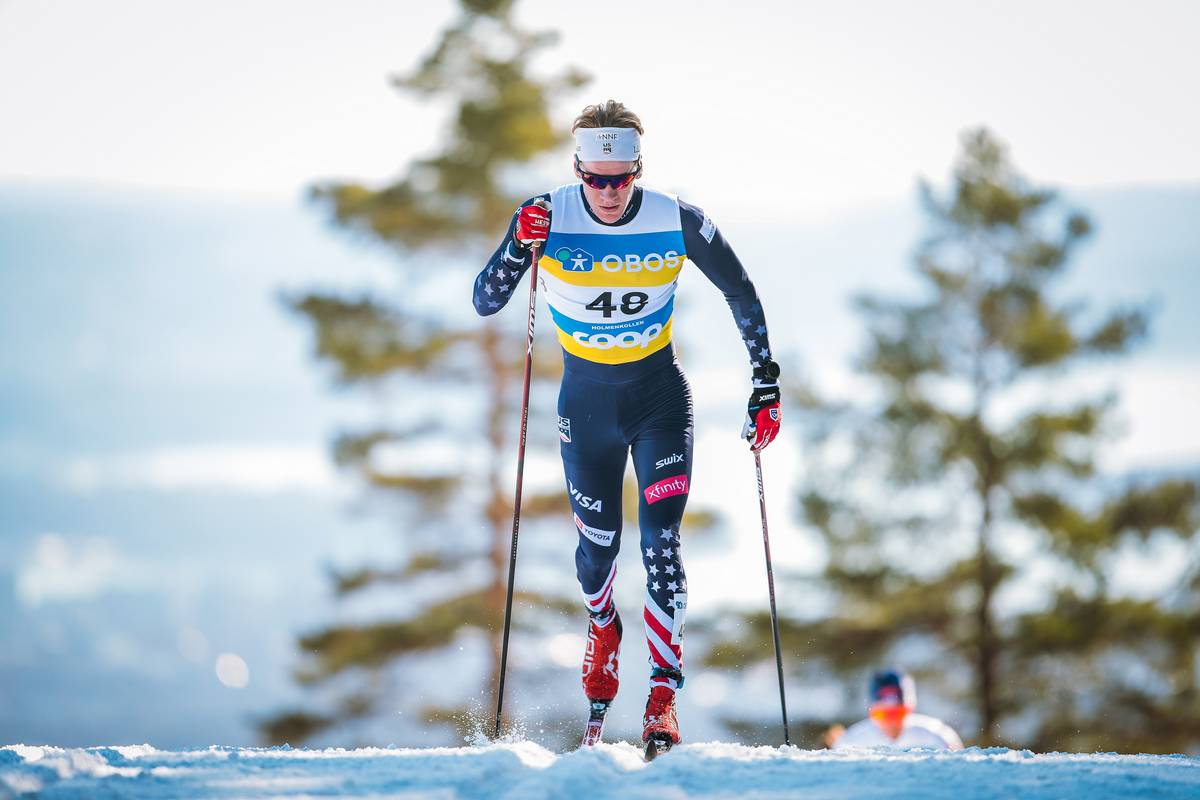
FS: Team Birkie also recently made team announcements, and I couldn’t help but notice that there’s 1) a lot of new skiers coming out of college, and that 2) many of them, even if they have been skiing elsewhere in college, have Midwestern roots. And with what you’ve said about your loyalty to the region, I was wondering if you have any reflections on that?
ZK: I’d definitely encourage other people from other regions join up with us, but it’s really cool to have a lot Midwestern skiers recognizing the resources we have here, and wanting to come back to this community. Both Renae (Anderson) and Erin (Bianco) for example, skied out east at Colby and Bowdoin. I know that they had really positive experiences as students there and will bring those back here. That’s cool. The goal with Team Birkie is that those who come from this ski community in Minnesota, Wisconsin, and Michigan can stay in it and reach the top of the sport. And the number of skiers coming back to pursue that adds a lot of pride and ownership to that mission for all of us.
FS: Final question then: What’s more likely, Petter Northug starts another World Cup, or the Minnesota Vikings win a Super Bowl?
ZK: Unfortunately, I would say both have about a 0% chance of happening.
I just got done having the most typical Minnesota sports experience watching the Timberwolves build me up to let me down in the playoffs. Hopefully Team Birkie can escape the Minnesota sports curse.
FS: Well, if you’re the quarterback of Team Birkie, I think you’re doing better than Kirk Cousins is for the Vikings.
ZK: That’s not saying much, but I really appreciate it.
FS: Well in any case, thanks Zak, and good luck this season!
ZK: Thank you!
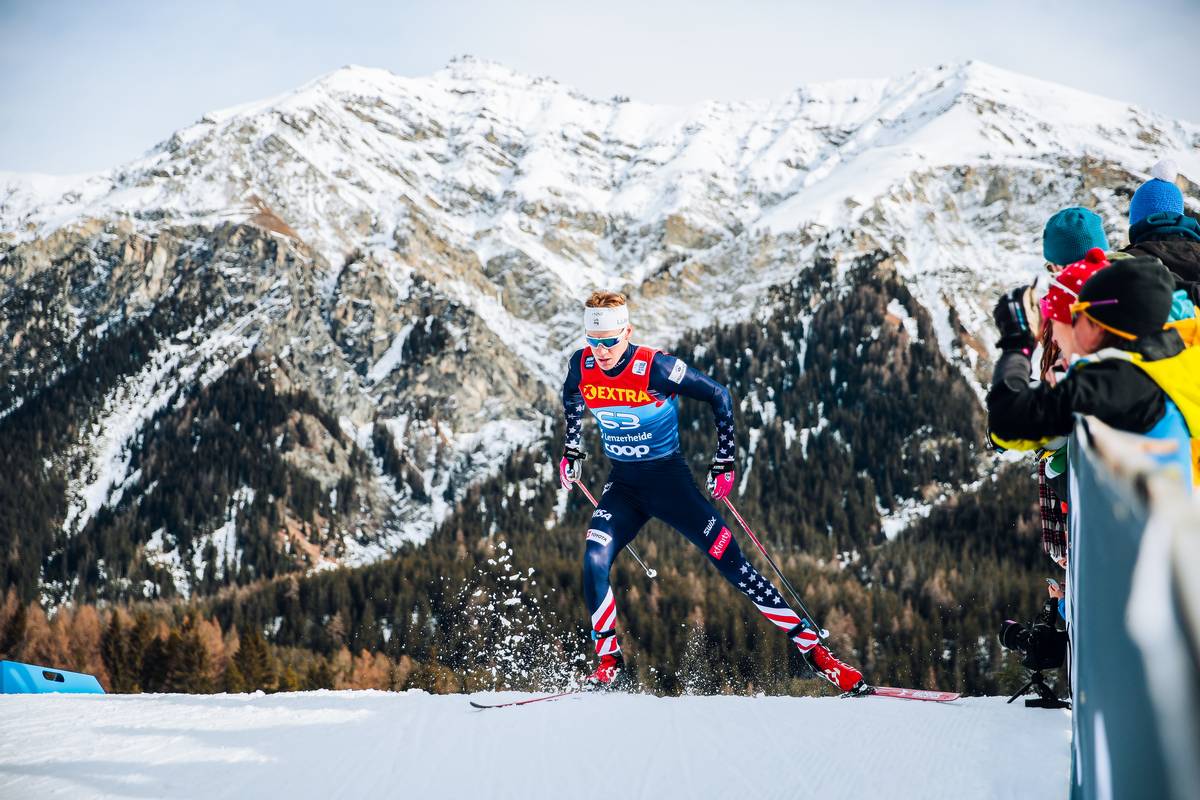
Ben Theyerl
Ben Theyerl was born into a family now three-generations into nordic ski racing in the US. He grew up skiing for Chippewa Valley Nordic in his native Eau Claire, Wisconsin, before spending four years racing for Colby College in Maine. He currently mixes writing and skiing while based out of Crested Butte, CO, where he coaches the best group of high schoolers one could hope to find.



